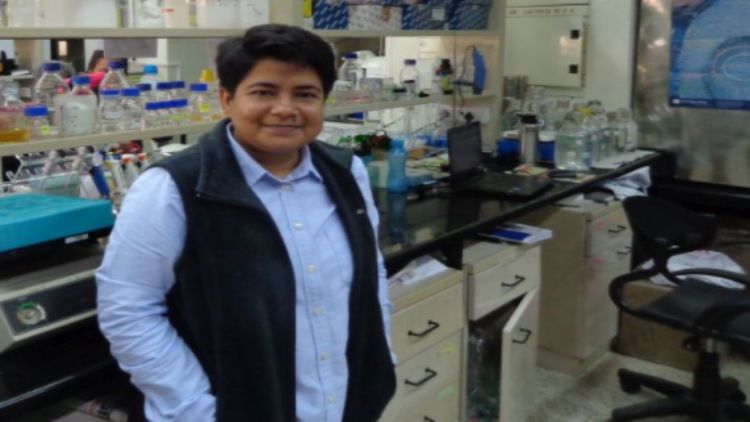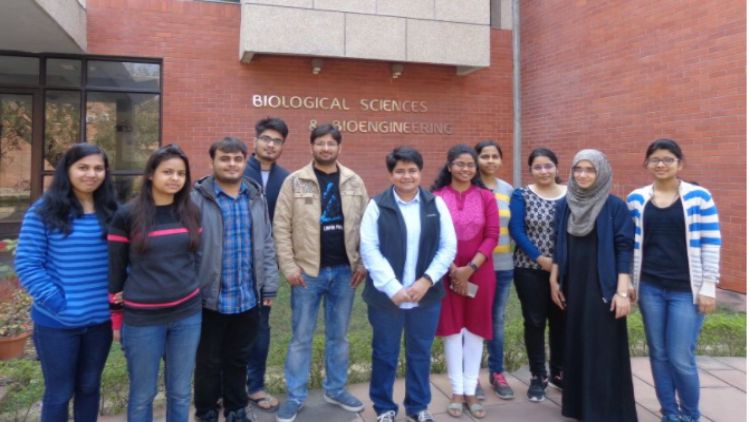
Manjit Thakur / New Delhi
Dr Bushra Ateeq is an inspiration in many ways. Firstly, an alumnus of Aligarh Muslim University, Dr Ateeq is the recipient of the Shanti Swarup Bhatnagar Award, the Indian equivalent of the Nobel peace prize for sciences.
Bushra Ateeq led a team of researchers from various institutions and they worked in the Department of Biological Sciences and Bioengineering at IIT Kanpur. This team detected the most aggressive agent that triggers SPINK1-positive prostate cancer, affecting 15 per cent of cancer patients. The team detected its molecular mechanism and pathology.
After doing her PhD from Aligarh Muslim University, Dr Ateeq was a postdoctoral fellow at Michigan Center for Translational Pathology, Department of Pathology, University of Michigan where she worked under the guidance of Dr Arul Chinnaiah.

Dr Ateeq's research covers topics such as cancer biomarkers, cancer genomics, non-coding RNA, drug targets and prostate cancer.
Dr. Bushra Ateeq with fellow researchers at IIT Kanpur
Her work focuses on cancer of the prostate, breast and large intestine. Her research is based on cancer biomarkers and molecular changes that drive growth in prostate and breast cancers.
In her media interaction she once said, “Our laboratory wants to find targets for anti-cancer treatment.” She adds that identifying these targets will lead to early cancer detection, and this is extremely important. Early detection increases the chances of successful treatment.
In 2019, Dr Ateeq’s team discovered the molecular mechanisms and pathophysiology of the Spink1-positive prostate cancer subtype. She said, "We found that increased levels of EZH2 protein trigger a decrease in the synthesis of these two microRNAs in SPINK1-positive cancers. And low levels of the two microRNAs in turn, lead to an overproduction of SPINK1."
In the latest study was done in the Molecular Oncology lab with her other researchers from IIT Kanpur in collaboration with CSIR-Central Drug Research Institute, Lucknow, and other groups working on prostate cancer from Canada, the US and Finland, androgen deprivation therapy, which can be used to treat prostate cancer. Used for the treatment of the prostate, it enlarges instead of curing it.
 Dr Bushra Ateeq with her team
Dr Bushra Ateeq with her team
Professor Ateeq told the research journal Research Matters, "Given the widespread use of androgen deprivation therapy for prostate cancer patients at the moment, our findings are alarming. Prostate cancer patients should be given a lot of consideration before giving anti-androgen therapy.”
Now Bushra wants to find the mutational landscape of the Indian population through gene sequencing. Along with this, she also wants to find a method under which special biomarkers of prostate cancer can be developed and that can be identified only through a urine test.
At present, a biopsy is done through 12 holes in the prostate gland with thick needles to detect cancer. He has also said in one of his interviews, "It is very painful to see someone undergoing a biopsy. I feel that a method of a blood test or urine-based test to find biomarkers."
Dr Bushra recollects how early in his career, one of her classmates had advised him to become a teacher in an undergraduate college.
Even today her philosophy of life is: be patient and don't let criticism come in the way.
